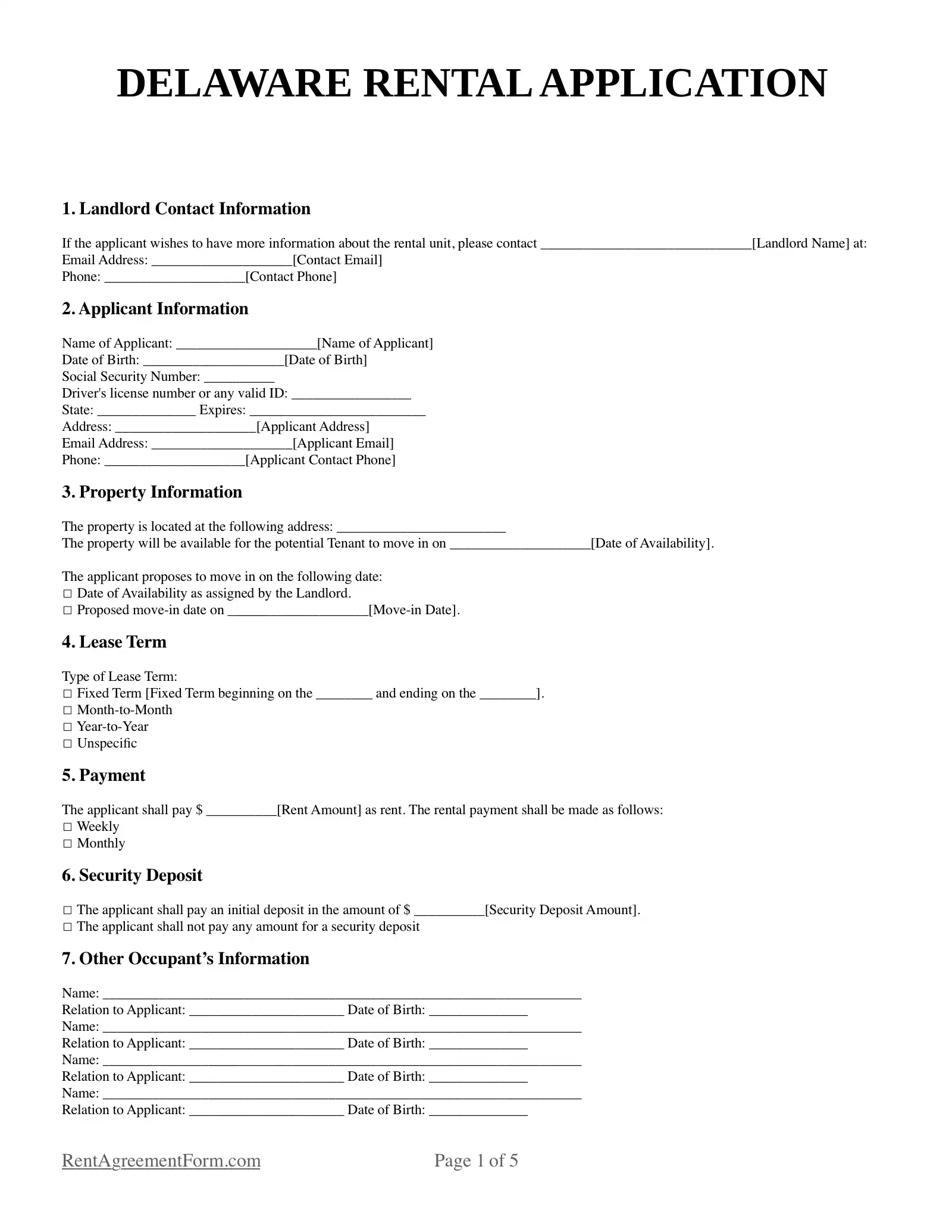Delaware Rental Application Form
Delaware is known for its high standard of living and affordability. For those planning to live in the First State, the first step is to check out real estate in the area. And when you find a property you like, you must submit a Delaware rental application form.
What is a rental application form? It is a document that a prospective tenant submits to the landlord. The prospective tenant must fill out the form honestly because it includes personally identifiable information. The form also serves as the prospective tenant’s consent to undergo a background check.
Landlords will look into the credit score of applicants to determine their financial situation. They will acquire details about their income, debts, and other financial obligations. This is all to ensure the potential tenant can afford to pay monthly rent and has no eviction record.
In multi-family buildings, the landlord wants to ensure the tenant doesn’t have a criminal history for the comfort of the other residents in the building.
But while the landlord has the right to do a background check on the applicants, they cannot reject applications based on one’s race, nationality, gender, religious affiliations, and familial status. The Federal Fair Housing Act protects tenants from discrimination.

Rental Application Fee in Delaware
A Delaware landlord may charge a maximum rental application fee of $50 or 10% of the unit's monthly rent. According to Delaware law: “The landlord shall, upon receipt of any money paid as an application fee, furnish a receipt to the tenant for the full amount paid by the tenant, and shall maintain for a period of at least two years, complete records of all application fees charged and amounts received for such fee” (25 DE Code § 5514 (d)).
The application fee is non-refundable because it will be used for the background check and administrative services.
Delaware Security Deposits for Rental Applications
Delaware landlords may require security deposits, but they should not be more than the equivalent of one month’s rent. The deposit provides security for the landlord—if there is damage to the property at the end of the tenancy, they can fund the repairs. The security deposit may also cover the tenant’s unpaid rent.
Unlike the rental application fee, security deposits are refundable. The landlord must return the unused security deposit to the tenant within 20 days from the termination of tenancy (25 DE Code § 5514).